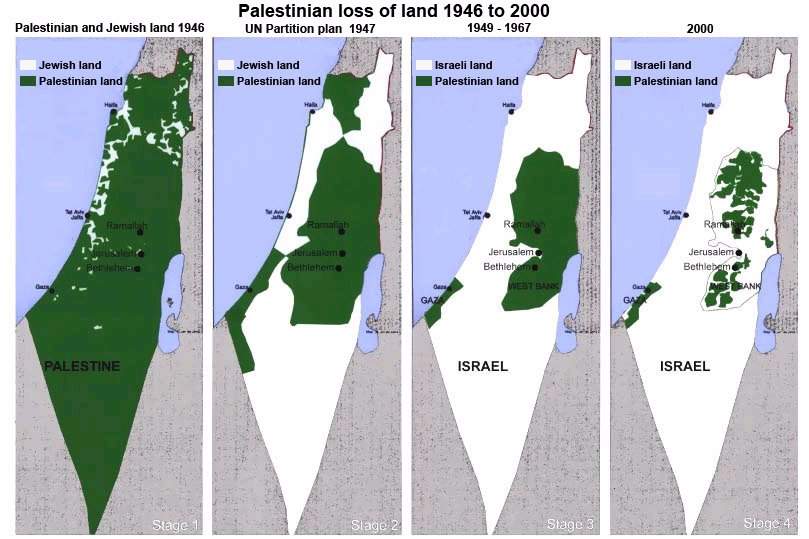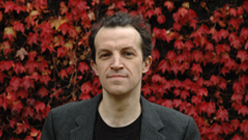Thailand: Why aren’t the generals in jail?

Thai soldier during the September 19, 2006, coup sports the monarchy's colour, yellow.
By Giles Ji Ungpakorn
Sudan: Secret police target Communist Party press

September 15, 2011 – Links International Journal of Socialist Renewal – The New York-based Committee to Protect Journalists
Dateline Egypt: Everything up for grabs in ongoing revolt

On September 9, a huge protest took place outside the Israeli embassy in Cairo. The protest was driven by anger at Israel's killing of Egyptian police in August, the deep solidarity the Egyptian people feel towards Palestinians and frustrations at the slow pace of change.
By Raul Bassi, Cairo
September 11, 2011 -- Green Left Weekly -- After the overthrow of Egypt's dictator Hosni Mubarak in February 2011, a new chapter in Egyptian history is being written and its authors are the people themselves. Anything could happen and everything is up for grabs given the profound political, social and economic crisis in which Egypt's neoliberal system finds itself in.
These events are part of the broader process of revolutions sweeping the Arab world, but Egypt's future will in no small part be influenced by the characteristics and history that make the country what it is today.
The results of neoliberalism in Egypt are clear: poverty, misery and daily struggles to survive.
See also:
Cairo eyewitness: Fresh protests demand real change
Thailand: Free Somyot Prueksakasemsuk!

September 17, 2011 – Australia Asia Worker Links reports that jailed trade union activist
Venezuela: Communes in Caracas

Concrete block production by the Ezequiel Zamora Commune, Antimano, Caracas.
September 7, 2011 -- Cuidad CSS, translated by Owen Richards for Venezuela: Translating the Revolution. Posted at Links International Journal of Socialist Renewal with permission -- Among the aims of community organisation is that of building the communal state, where power is exercised directly by the people, through self-government, with an economic model of social property and local self-development.
Based on this premise, 236 communes and more than 9000 communal councils have been established, according to information from the Ministry of Popular Power for the Communes.
Through this process the city of Caracas has turned into a space full of examples of self-government.
Socioeconomic model
In the Capital District around 44 sectors exist that are in the process of building communes in order to lay the foundations for Venezuelan socialism.
In the Antimano ward, 18 communal councils of the Carapita sector and part of Santa Ana organised to establish the Victoria Socialist Commune.
Palestine: Ilan Pappe -- At the UN, the funeral of the two-state solution

By Ilan Pappe
September 12, 2011 -- Electronic Intifada -- We are all going to be invited to the funeral of the two-state solution if and when the UN General Assembly announces the acceptance of Palestine as a member state.
The support of the vast majority of the organisation’s members would complete a cycle that began in 1967 and which granted the ill-advised two-state solution the backing of every powerful and less powerful actor on the international and regional stages.
Even inside Israel, the support engulfed eventually the right as well as the left and centre of Zionist politics. And yet despite the previous and future support, everybody inside and outside Palestine seems to concede that the occupation will continue and that even in the best of all scenarios, there will be a greater and racist Israel next to a fragmented and useless bantustan.
Pakistan: Arrested, tortured for assisting climate change victims

Baba Jan speaking at a demonstration for the flood affected earlier this year.
Derek Wall: 'Ecosocialism places Marx at the centre of its analysis'

September 10, 2011 -- Green Left Weekly -- Economist, activist and writer Derek Wall (pictured above) is a member of the Green Party of England and Wales (and the Green Left grouping within it) and is the author of several books on ecology and politics. Wall will speak via video link at the Climate Change Social Change activist conference in Melbourne,r September 30 to October 3. He maintains the ecosocialist blog Another Green World. He spoke to Green Left Weekly’s Simon Butler about the politics of ecosocialism.
* * *
What are the most valuable insights ecosocialists can bring to discussions about the source of our ecological problems?
Ecosocialism, without being reductionist, cuts to the roots of the ecological crisis. The destruction of the environment is not an accident. It is not simply a problem of false ideas and it is not a product of inappropriate policies that can easily be dealt with by electing a new set of politicians.
Black liberation and the Communist International

Claude McKay.
By John Riddell
September 11, 2011 -- This article also appears at http://johnriddell.wordpress.com, posted at Links International Journal of Socialist Renewal with John Riddell's permission -- The influence of the Communist International was decisive in the early 1920s in winning a generation of black revolutionaries to Marxism. On this the historians agree. But what did this influence consist of, and how was it exerted?
By the Swaziland Democracy Campaign
September 10, 2011 -- Links International Journal of Socialist Renewal -- Friday, September 9, marked the last day in the second Global Week of Action on Swaziland, culminating in a large protest march in Mbabane that resulted in pitched battles between a heavily armed and aggressive security detachment, and mostly poor workers, students and the unemployed, who gathered legally and peacefully as they have done all week.
On September 5 and 6 (Monday and Tuesday) only minor skirmishes took place, and the security services were restrained and largely non-provocative. This is as it should be. The marches were legal, and the organisers made it clear that they wanted to exercise the few rights that they have.
There have been more than 20 protests across the world, and seven inside South Africa. These took place outside of the various offices of the Reserve Bank of South Africa in order to draw attention to the ill-advised bailout of R2.4 billion that is being offered to the Swazi regime through the Reserve Bank, "facilitated" by the South African African National Congress (ANC) government. The protests were also about the need for solidarity with the democratic forces inside Swaziland.
On the Australian left: 'Let’s unite behind Green Left Weekly'

September 8, 2011 -- Green Left Weekly -- For many years we were regular contributors to Green Left Weekly and proud supporters of the paper. We’ve now decided to resume writing for GLW and we urge other former contributors to consider doing the same.
In May 2008, we and about 50 other former members of the Democratic Socialist Perspective (DSP) launched the Revolutionary Socialist Party (RSP) and the monthly paper Direct Action (DA) following a bitter internal dispute in the DSP that centred on the Socialist Alliance.
In August 2010, we and six other members of the Sydney branch of the RSP left the organisation as a group, having concluded that the RSP was not viable as a Marxist party because it lacks both a critical mass of activists and realistic possibilities for recruitment.
We were unable to establish enough of a readership and support base for DA to justify the effort that goes into the paper.
GLW, on the other hand, has established itself over the past two decades as a socialist publication with a relatively high profile, readership and support base.
It’s the only such publication that comes out weekly and its website is among the ten most visited Australian political websites.
